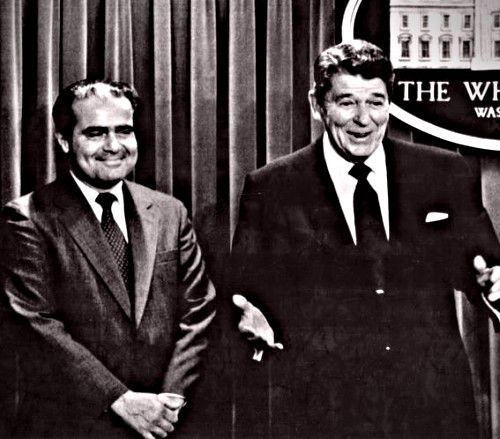
Donald Trump is running for president. Less than a month into his administration, he has already held a rally to begin the 2020 campaign, and he is accepting campaign contributions. His speech this week at the Conservative Political Action Conference, (CPAC), also found him, after 15 minutes of incoherent whining about the evils of the press, in campaign mode. The speech was full of boastful promises of all the wonderful things he would do if elected.
There are two problems with this that come immediately to mind. First, given that Trump is already being watched by the press and others for any concrete signs of conflicts of interest, soliciting donations this early only worsens the problem. But Trump’s speech also shows that he does not understand how a reelection campaign is different from an election campaign. Trump was able to get elected by making a series of promises, and by striking a pose as the champion of the little guy. Some of his promises were frightening, and his supporters would tell you that he wasn’t really going to do these terrible things. The wall, paid for by Mexico, to keep “bad hombres” out was an obvious fantasy, they might say, but it showed his concern about American jobs bleeding away to other countries. A total ban on Moslems entering the country was another obvious fantasy, they would tell you, but it showed he would be tough on terrorists. His supporters by and large had bought the story that Obamacare was the evil replacement for the Affordable Care Act, and Trump would replace it with something so much better.
When you run for reelection, however, you don’t get to run on just promises, and you don’t have supporters who can say you won’t really do what you have already done. You run for reelection based on what you have actually done, and how it has played out. Donald Trump is running for reelection at a time when he has accomplished remarkably little, and what he has accomplished has shown that the worst fears that his defenders tried to brush off are not just fantasies. On Tuesday, Trump will submit his first budget to Congress, but up to now he has sent no major legislation there, and there is no sign that he is ready to do so. Given the reported disarray within his cabinet, expectations for any coherence in the budget document are low. Meanwhile, Trump arrived in the White House thinking he could govern entirely by Executive Order, and he immediately tried to institute the Moslem ban. He was shocked to discover that our nation has a system that places checks on his power, and the ban was thrown out in court. The promised new executive order to reinstate the ban has yet to emerge, probably because there is simply no legal way to do it, but Trump keeps trying. He continues to brag about how he is going to get that wall built, but people are starting to understand that it will be the American people who will pay for it through higher taxes. Trump has also ramped up deportations of illegal immigrants. In this case, there has been some great coverage of the human cost of this policy. It becomes much harder to campaign on being tough on illegals when the press is reporting about hard working parents who fear that their children will be orphaned one day because their parents will be stolen from them. Stories of overreach by immigration officials, such as beloved children’s author Mem Fox promising that she will never again visit the United States, have also made the Moslem ban harder to campaign on. Trump is still trying to campaign on his promise to repeal and replace Obamacare, but he has left Congress flailing away at how to do this, while he has failed to provide any direction or guidance. The town hall protests have brought out many stories in the press about how repealing the Affordable Care Act would harm real people, including many who voted for Trump. Trump his also tried to take credit for the performance of the economy since he took office, but it was immediately pointed out that this shows instead the success of Obama’s economic management. There has been no time yet for anything Trump might have done to have any effect on the economy, and even that budget won’t make a difference for another year.
Altogether, Trump has very little in the way of accomplishments to campaign on at this point, and what he has done has been shown to be harmful to real people who are telling their stories. So the empty promises and the 2020 campaign continue.Trump ended his CPAC speech with these words:
There is no dream too large, no task too great. We are Americans, and the future belongs to us — the future belongs to all of you. And America is coming about, it's, and it's coming back and it's roaring and you can hear it. It's going to be bigger and better. It is going to be, it is going to be. Remember. And it's roaring. It's going to be bigger and better and stronger than ever before.
I was chilled, thinking of this:


